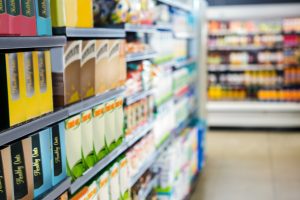
In Business Today, Labels Are More Than Logos
Ask the average consumer walking through a mall or grocery store what a “label” is, and they’ll probably describe the kind you find on a jar of peanut butter or pair of jeans. That’s only logical as it would be almost impossible to count the number of labels we encounter each day in our homes, workplaces and retail establishments.But in business today, labels play what might be an even more important role behind the scenes.
Labels are critical not only in branding products, but in sourcing, manufacturing, distributing, and tracking them. So in the next several weeks, I will be including posts on a variety of different label types and technologies. Through our network of over 1,000 printers, Superior Business Solutions provides an incredible variety of labels to clients across the country, helping them maximize efficiency and save money in the process.
Labels Lead To Better Logistics
The surge in the importance of labels throughout the supply chain is driven by several factors. Competitive pressures faced by businesses today require them to maximize efficiency at every point in the process. Labels help do that, by automating the process and decreasing delays and errors in several functional areas, including:
- The acquisition of raw materials and component assemblies on a reliable, just-in-time basis to enable an even and dependable flow. The location, ordering, and transport of batches and shipments is tracked in real time thanks to advanced labeling protocols.
- The production process itself is managed much more precisely as operations are synced completely with product locations, model variations, and quality check results. Errors are more quickly detected and corrected, downtime is minimized and the highest possible level of throughput is realized.
- Transportation and distribution of products is enhanced as real-time tracking of loads is provided by labels attached to pallets, shipments, or individual products as appropriate. Information gaps disappear, and delivery projections are more than educated guesses.
- In warehousing and fulfillment operations, labels increase picking speed and accuracy and enable more efficient sortation. Whether products are headed to retailers or direct to consumers, delivery is more timely and mistakes are greatly reduced.
Leaning on Labels for Legal Compliance
Another factor in the increasing prominence and importance of labels in business and industry is the increased governmental requirements and standards for strict accountability throughout the supply chain and manufacturing process. The potential for problems impacting consumers creates a logical need to be able to trace a product or shipment with extreme accuracy as to the date, time, and place of its manufacture and shipment.
It’s easy to see that such care is justified when health and safety of consumers is at stake. Fortunately, labels allow companies to provide this level of tracking specificity without slowing their operations or greatly increasing costs to do so. Many industries face these requirements, but some of the most obvious include:
- Agriculture – where PTI labels help identify source farms and processors for produce grown or imported into the United States. Other countries have similar requirements in place.
- Dairy, meat processing and other food industries that require similar accountability to help ensure quality and minimize impact on consumers if problems arise.
- Automotive – where labels help identify plants and suppliers of origin should defects arise and recalls become necessary. They also help identify and locate affected vehicles so safety-related alerts can be sent and repairs arranged.
- Medical -where research and diagnosis demand precise identification of vials, test tubes, and other containers holding intensely important and personal test results. Extreme high-tech medical equipment creates the need for labels that convey the proper caution and protocols to keep patients and medical personnel safe.
I’ve only scratched the surface with these quick and general examples; you can learn a lot more about industry-specific custom labels here.
Label This Series “Valuable”
In the coming weeks, I’ll be talking about some unique types of labels in this blog series, including one designed for craft brewers, made in part from actual hops. I’ll also talk about another type of label that is enjoying great success; Instant Redemption Coupons (IRCs). You’ve probably seen and even used them yourself. Have you seen those packages with a “Save $1 Now” coupon attached to a product on the shelf? That’s an IRC and they work like crazy to move product.
‘Okay,” you say. “Labels are important, I get it. Why are you focusing on them so much now?” Well, I’m doing it for two reasons. First, I want people to understand that labels are far too important to regard as just a “commodity.” You may use thousands or millions of them in the course of doing business each year, but you might not be aware of how your business might benefit from a supplier that can deliver them throughout the nation to multiple locations with maximum accuracy and money-saving efficiency.
Our Corporate Kiosk technology will help you streamline your operations, reduce redundancies and allow people throughout your enterprise to order the same approved labels without wasting time sourcing them independently, which as you know can lead to mistakes, wasted productivity and inconsistency.
I’m also talking about labels now to encourage you to think about their role in your organization, now and in the future. You can get in touch with me directly if you like, or call one of our sales reps, who are well-versed on the subject.
In most businesses, labels are likely to be a bigger issue tomorrow than today, so it’s to your advantage to think about them now. At the very least, you can probably save money and time, but you might also gain a competitive advantage that will provide an even bigger boost to your bottom line.



